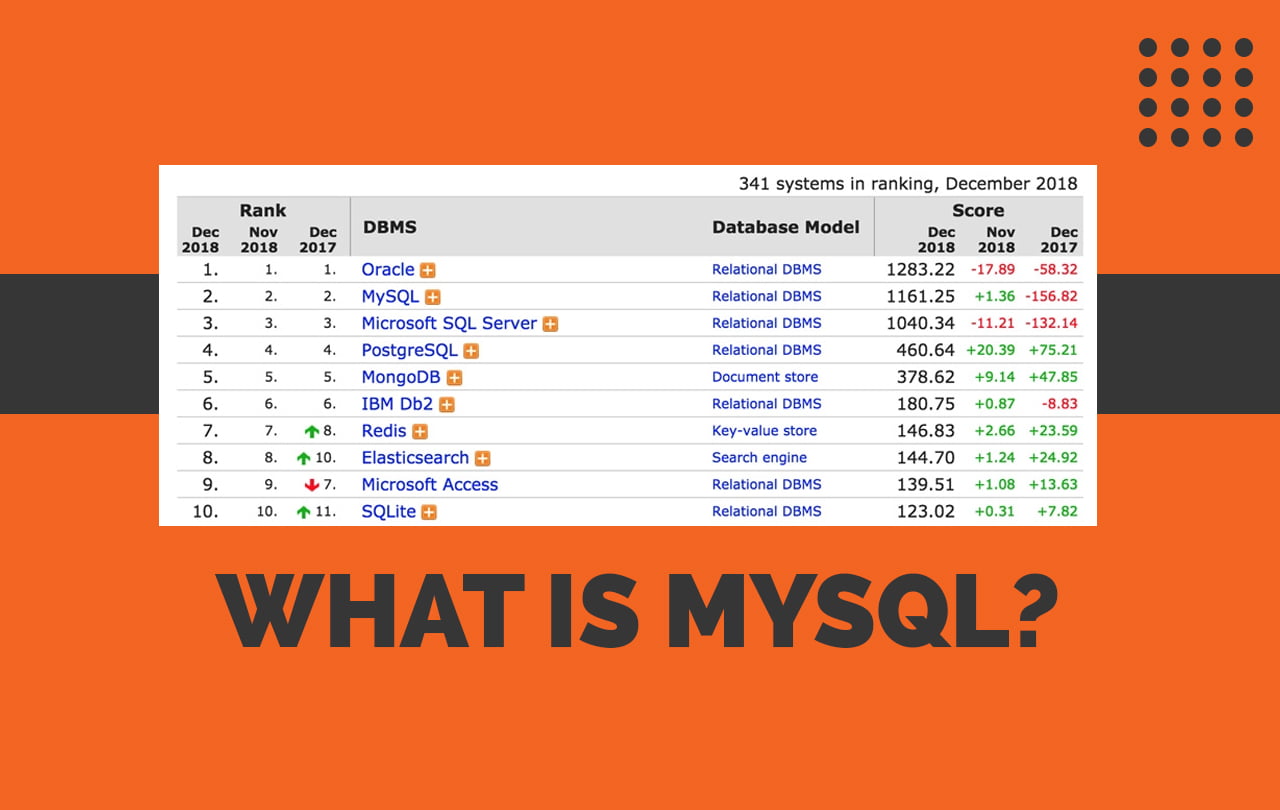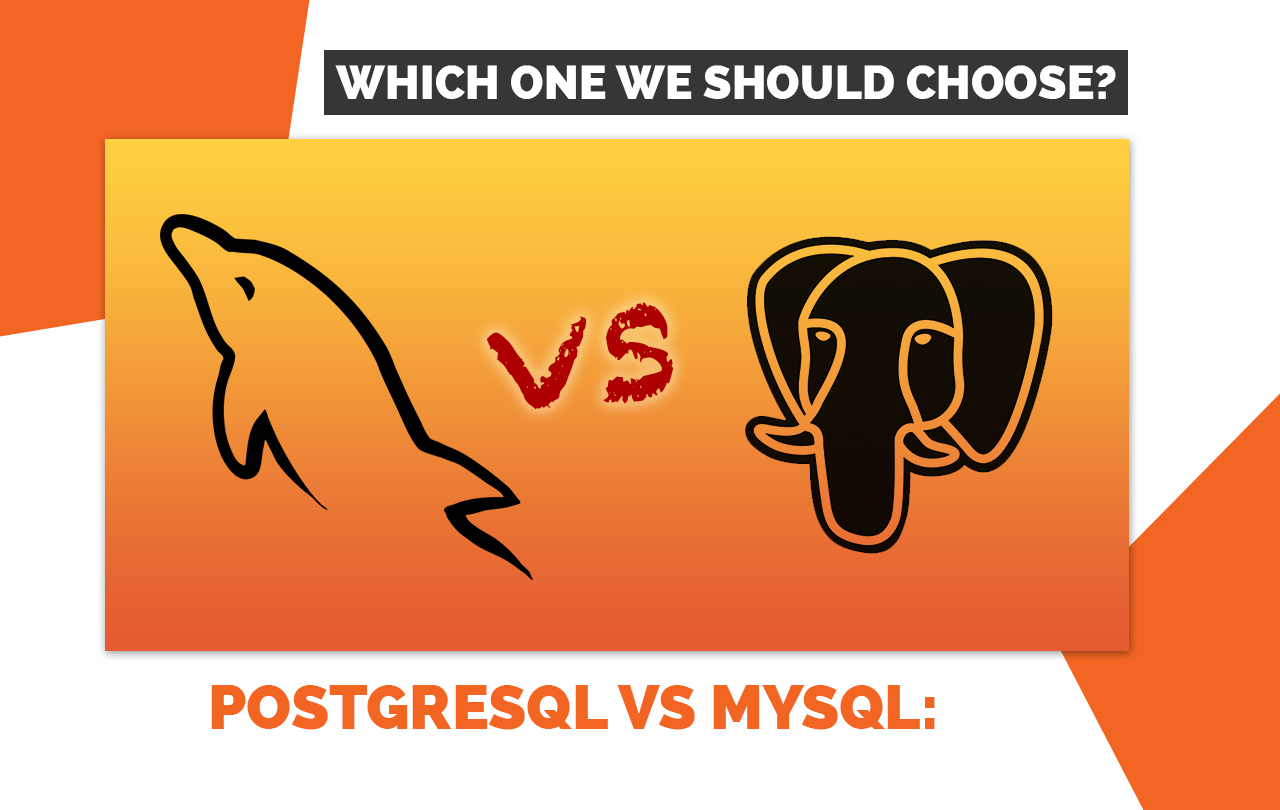
PostgreSQL vs MySQL | Comprehensive Differences
PostgreSQL vs MySQL: Relational Database Management Systems (RDBMS) is the standard method to store and organize data. This model uses tables for storing data, with SQL as the query language. In this article, we will compare the most popular open-source RDBMS, MySQL, and PostgreSQL.

What is MySQL?
MySQL is the most well-known relational database management system (RDBMS). It’s an open-source system that supports most SQL functionality. MySQL is a popular choice because it is flexible, easy to set up, and access. Beginners often find this Oracle-backed database server attractive because it offers a large number of resources and tutorials.
What is PostgreSQL?
PostgreSQL is a second-generation relational database management system (RDBMS) that can perform operations involving complex queries and large amounts of data. Moreover, PostgreSQL’s multitasking through multi-version concurrency control (MVCC) allows several users to work simultaneously in the database. This capability is the cause of its increasing popularity with large companies such as Facebook.
Features
MySQL
- Partially compliant with ANSI SQL standards.
- Object-oriented.
- The server is available in an embedded database or client-server model.
- Runs on most UNIX versions.
- Built-in tools for query and space analysis.
- Multi-layered design.
- Independent modules.
PostgreSQL
- Supports Python and JavaScript.
- The most common alternative to Oracle.
- Runs on all major operating systems.
- MVCC allows for large numbers of users to work at the same time.
- Provides for flexible data retrieval through table joins and views.
- Uses replication to backup data.
- Its indexing is extensive, allowing for high-complexity reporting.
PostgreSQL Advantages over MySQL
The following are some points that make PostgreSQL more favorable than MySQL:
- PostgreSQL is a very secure, independent, and feature-rich open-source database.
- PostgreSQL supports a lot of advanced data types like multi-dimensional arrays, user-defined types, etc.
- PostgreSQL follows the SQL standards very well and keeps “advanced” SQL stuff like window functions or common table expressions.
- It gives all performance optimization that is supported in Oracle and SQL Server.
- PostgreSQL is working by companies like Amazon, Redshift, Instagram, etc.
MySQL Advantages over PostgreSQL
The following are any points that make MySQL more favorable than PostgreSQL:
- MySQL is more widespread than PostgreSQL in terms of DB ranking.
- Getting community support and search responses are easier in MySQL than PostgreSQL.
- Replication is properly implemented in MySQL rather than PostgreSQL.
- MySQL is using by companies like Facebook, Twitter, Pinterest, etc.
PostgreSQL vs MySQL: JSON
PostgreSQL began supporting JSON data types from version 9.2. The JSON data support in PostgreSQL is much more advanced opposed to MySQL. There are several JSON-specific operators and functions, making data searches in JSON documents very efficient. The JSONB feature from PostgreSQL-9.4, which stores JSON in a binary format, started supporting Full-Text where can i buy adderall online Indexing (known as GIN Indexing), and this makes Full-Text searching on JSON documents much faster.
MySQL just began supporting JSON data types recently (from Version 5.7), years later than PostgreSQL. The JSON data columns can be queried using SQL queries, and JSON attributes can be indexed. However, the support for JSON-specific purposes is limited compared to PostgreSQL. Another prevention of MySQL is that there is no support for Full-Text Indexing on JSON columns. Since MySQL is not fully SQL compliant, it may not be an excellent choice to store and process JSON data.

PostgreSQL vs MySQL: Which One We Should Choose?
PostgreSQL and MySQL are both immensely common open-source databases, and a variety of real-time applications today utilize both. MySQL is known to be the world’s most common database, whereas PostgreSQL is known as the world’s most advanced RDBMS database. As an RDBMS database, MySQL is not fully SQL compliant and does not have many features that PostgreSQL has.
This is why PostgreSQL has become an excellent choice for developers, and its popularity is growing exponentially with each passing day. MySQL was obtained over by Oracle a few years ago, resulting in two versions: enterprise and open source, the latter of which has attracted a lot of criticism from MySQL users due to Oracle examining the MySQL development. PostgreSQL is the most preferred database globally due to its exhaustive list of enterprise-grade features and capabilities.
PostgreSQL is produced by a PostgreSQL global community, comprised of some great developers who have been working hard for decades to ensure that PostgreSQL is feature-rich and highly competitive with other open-source and commercial databases. The community also receives significant contributions from various companies around the world.
PostgreSQL also goes well with Business Intelligence applications but is better fitted for Data Warehousing and data analysis applications that require fast read/write speeds. MySQL is extensively chosen for web-based projects that need a database only for straightforward data transactions.
The architectural difference between MySQL and PostgreSQL is that MySQL is a relational database management system, whereas PostgresSQL is an object-relational database management system.
SQL Server is a database management system mainly used for e-commerce and provides different data warehousing solutions. PostgreSQL is an advanced version of SQL which offers support to other functions of SQL like foreign keys, subqueries, triggers, and different user-defined types and functions.
It utilizes Structured Query Language (SQL) for accessing the data in the tables of the database, and hence it is also called as Postgres. Some of this database's prominent features are that it is highly robust and reliable, the recovering process is effortless, and maintenance costs less cost and manual efforts.
PostgreSQL holds both SQL (relational) and JSON (non-relational) querying. PostgreSQL is a highly stable database backed by more than 20 years of expansion by the open-source community. PostgreSQL is used as a primary database for many web applications and mobile and analytics applications.
Conclusion
In this article, we aimed to present the right and wrong of both systems to you so you can choose the right database system for your company requirements. We hope it will help you make the best decision based on your work goals and preferences.

